Liz Gilbert on Love, Loss, and Liberation
✨ PLUS an exclusive excerpt from her new book ✨
Greetings, Soul Boomlets!
And a heartfelt hello to all the visiting Lovelets.
This week, we’re over the moon to have the iconic Liz Gilbert in our midst. Her conversation with Rainn on this week’s Soul Boom podcast is one you won’t want to miss.
We’ve got to wonder—who among us hasn’t at least heard of that “nice lady who wrote Eat Pray Love” (as she so self-deprecatingly puts it)? This is a woman Julia Roberts once played on the big screen. And she’s an author whose work has been chosen twice for Oprah’s Book Club—first for the game-changing Eat Pray Love, and now for her newest memoir, All the Way to the River: Love, Loss, and Liberation. In many ways, it feels fitting: All the Way to the River is almost a bookend to the journey that began with Eat Pray Love.
Before we wade into the unflinching honesty of All the Way to the River, it’s worth revisiting the terrain of Eat Pray Love. In Liz’s own words, that earlier book was a “good guess” at what might heal — but in the end, its insights offered only a partial solution.
And it’s not hard to see why Eat Pray Love struck such a chord. Who wouldn’t want to go on a journey through Italy, India, and Indonesia, flavored with pizza, spirit, and romance? But more importantly, for millions of women in particular, the book became a permission slip: to leave a troubled marriage, to set out on a spiritual quest, to believe they were allowed to change their lives. Ultimately, its true legacy is not what it solved for Liz, but how it emboldened readers to reimagine their own lives.
But of course, Liz Gilbert is not just the character of her own memoirs. She is a living, breathing person, whose life continued past the pages of that now legendary book. And beyond the fame and recognition her writing has brought her, through all the highs and lows, she has remained committed to her craft of literary storytelling, using her art to explore and answer life’s toughest questions — no matter how gnarly it might get.
As she tells Rainn in the episode, Eat Pray Love was the book she wished she’d had at 30; Big Magic, at 18; Committed, when she got married. And All the Way to the River? It’s the book she wishes she’d had her whole life.
The insights Liz gained during her Eat Pray Love odyssey were profound but incomplete. Travel and love could not reach the deeper wounds of addiction and trauma that remained unresolved beneath the surface.
Back in a 2006 New York Times review of Eat Pray Love, Jennifer Egan — in passages that now seem strikingly prescient — observed that for all the details and stories Liz provided, “her crisis remains a shadowy thing, a mere platform for the actions she takes to alleviate it,” and that “while I wouldn’t begrudge this massively talented writer a single iota of joy or peace, I found myself more interested, finally, in the awkward, unresolved stuff she must have chosen to leave out.”
So what was the “unresolved stuff” left out? Put bluntly: addiction.
And did Liz choose to leave it out? By her own account, her addiction had been invisible to her — because it wasn’t one she drank, snorted, or smoked. It wasn’t a substance at all. It was a behavior — a form of what’s known as a “process addiction.”
Her addiction was people — particularly in the context of romantic love and sex.
But when her longtime bestie, Rayya Elias, was diagnosed with cancer, their friendship turned into a torrid affair — one filled with worry and intensity that sparked a fire which incinerated Liz’s life as she knew it. Brought to her knees, she could no longer deny the reality of a disordered relationship with intimacy. That journey compelled her into a deeper honesty — and a deeper healing.
Liz says she wrote this book for seekers — souls restless with a hunger they can’t quite name. That hunger can make us artists and explorers, but misdirected it can also turn us into love junkies. Liz has walked both sides of that line — healthy curiosity and unhealthy desperation — and she knows how easy it is to confuse salvation with finding a person to “complete” us.
She also wrote it to break a silence. Very few women ever admit publicly to sex and love addiction, even though the costs are devastating. Therapy rarely names it, culture romanticizes it, and shame keeps women suffering in the dark. Liz wants everyone to know there are programs, pathways, and communities of recovery.
Which brings us to her deepest lesson: the 12-step path isn’t just for hardcore addicts. As Liz quotes Richard Rohr, 12-step fellowships might be America’s greatest contribution to world spirituality. In a culture built on “more, more, more,” 12-step says: Surrender. Live modestly. Serve others. Turns out enlightenment isn’t found at the mountain top but at rock bottom.
So yes, Liz Gilbert has written the book she wishes she’d had her whole life — and we have a feeling many others will feel the same — even if, on the outside, it’s not quite as picturesque as her previous entry into Oprah’s Book Club.
And so we invite you to partake of an exclusive passage Liz has shared with us from All the Way to the River. In it, Liz asks a mind-expanding, heart-opening question that we’d love all you Soul Boomlets to ponder.
See you at the river,
The Soul Boom Team
Earth School
From All the Way to the River: Love, Loss and Liberation
by Elizabeth Gilbert
What if Earth is nothing but a school for souls?
What if this planet is the toughest and most elite accredited academy for spiritual ascension in the entire universe? What if our souls voluntarily elected to come here to undergo the wild experience of being spiritual entities contained within the forms of great apes, processing reality through the weird and flawed filter of human perception? And what if we pass our days moving through an extraordinarily complex educational curriculum that has been carefully tailored to push each soul toward its highest growth, evolution, and ultimate liberation?
What if we each agreed long ago to show up in these exact bodies at this precise moment in history—to be dropped into our exact families and influenced by the specific cultures in which we were born, to be blessed or burdened with certain gifts and limitations, to be faced with a series of singular troubles and tests—because there was something our souls could not have learned any other way except through this precise curriculum? (Or as Mark Twain put it: “A man who carries a cat by the tail learns something he can learn in no other way.”)
What if everything in Earth School is working exactly the way it’s supposed to be working, in other words—by teaching us things we can learn in no other way? What if everything (and everyone) that we label as “difficult” or “an obstacle” or even “dysfunctional” is in fact a deliberately designed construct meant to awaken us to our true natures—a divine crowbar, you might say, that is sent by the cosmos to knock down the doors of our ignorance, demolish our illusions, and give us the opportunity to move past our fears, find our innate courage, propagate wisdom, and help us to remember that we are of God?
Of course we cannot know if this is how fate works, because none of us know how fate works. But in my life, I have certainly found that the Earth School model is a useful thought exercise during times of darkness, pain, and betrayal—for it takes me out of a victim mentality and offers up a worldview that feels far more empowering and fascinating than the limiting, anguished cry of “Why me?!”
A more fruitful question than “Why me?” could be “How might this terrible situation be perfectly designed to help me to evolve?”
Because what if that’s really what it’s all about?
And what if we are all here to help each other evolve?
By any means necessary, perhaps?
My friend Barb Morrison—a fellow recovering addict and old friend of Rayya’s—calls this notion “Greetings from the Boardroom” and imagines it more or less like this . . .
Long before we were born, our souls gathered in a giant cosmic conference center and decided what curriculum we each needed to sign up for in order to best learn the lessons we would seek in this lifetime. Some of us asked for tender assistance—for patient guides, devoted friends, loving parents, faithful partners, wise spiritual teachers. Some of us volunteered to provide that tender assistance.
But some of the really brave students—the ones who wanted to make the most of their experience in Earth School—asked, “Okay, who will volunteer to be my abuser this time?” or “Who will be my alcoholic family member?” or “Who will be the lover who betrays me?” or “Who will be the child who breaks my heart?” or “Who will be the one who dies and leaves me all alone?”
Now here comes the miracle.
To each request, some benevolent soul on the other side of the boardroom raised their hand and said, “I’ll do that for you, my love. I’ll do that job.”
And so our teachers arranged to meet us. They agreed to bring us gifts not only of kindness and compassion but also of pain and trauma—by being exactly the people we needed to crash into at some prearranged moment so we could be broken open enough to perhaps learn something essential from the encounter, graduate from that lesson, and evolve ever closer to the light.
Wouldn’t that be incredibly generous of someone, to do that for you? To help you grow like that?
And what if a moment of clarity came—right in the middle of your suffering and struggling—when the two of you recognized each other from the boardroom?
What if you were like: “Oh, wow, I remember you!”
And all you could do was laugh, or weep, with gratitude?
And then—having served your purpose (having delivered or received the critical lesson)—what if you both released each other from your respective jobs?
What if you set each other free?
Wouldn’t that be magical?
My friends, my friends—wouldn’t that be something?
Excerpted from All the Way to the River: Love, Loss, and Liberation.
Elizabeth Gilbert is the #1 New York Times bestselling author of numerous works of fiction and nonfiction, including Pilgrims (1997), Stern Men (2000), The Last American Man (2002), Eat Pray Love (2006), Committed (2010), The Signature of All Things (2013), Big Magic (2015), City of Girls (2019), and her newest memoir All the Way to the River: Love, Loss, and Liberation (2025). Her books—translated into more than 30 languages and adapted into film and stage—have inspired millions of readers with their candor, humor, and insight into creativity, love, loss, and the search for meaning. Twice selected for Oprah’s Book Club, Gilbert is also a celebrated speaker whose TED Talk “Your Elusive Creative Genius” has been viewed by millions worldwide. She also writes regularly on her popular Substack, Letters from Love, where she and her guests share reflections written in the voice of unconditional love.


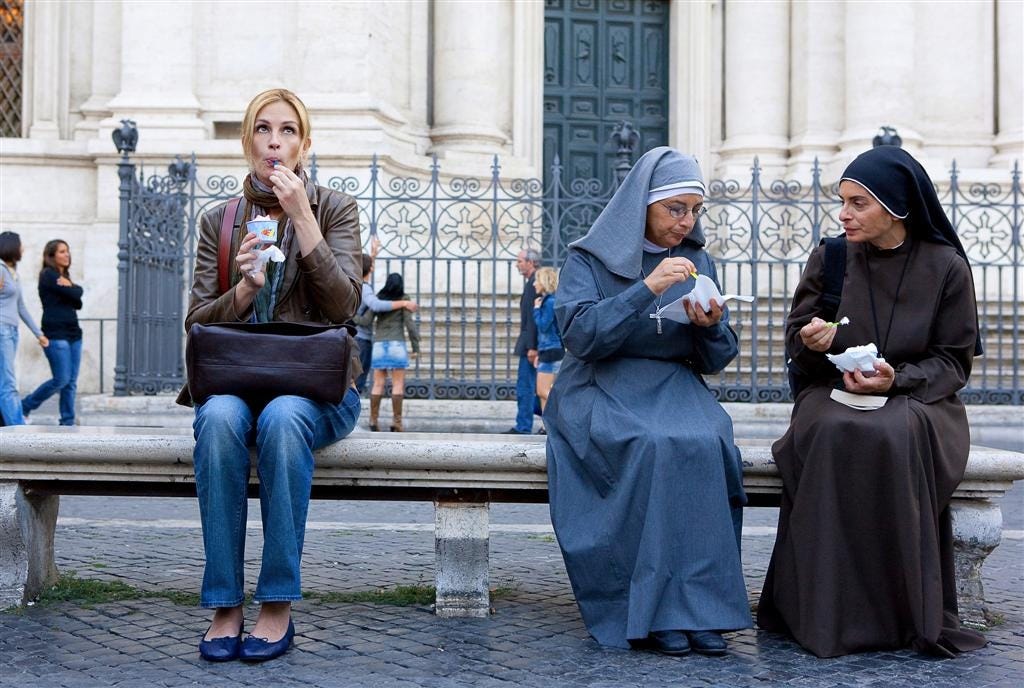
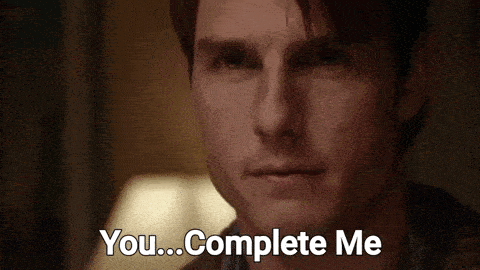
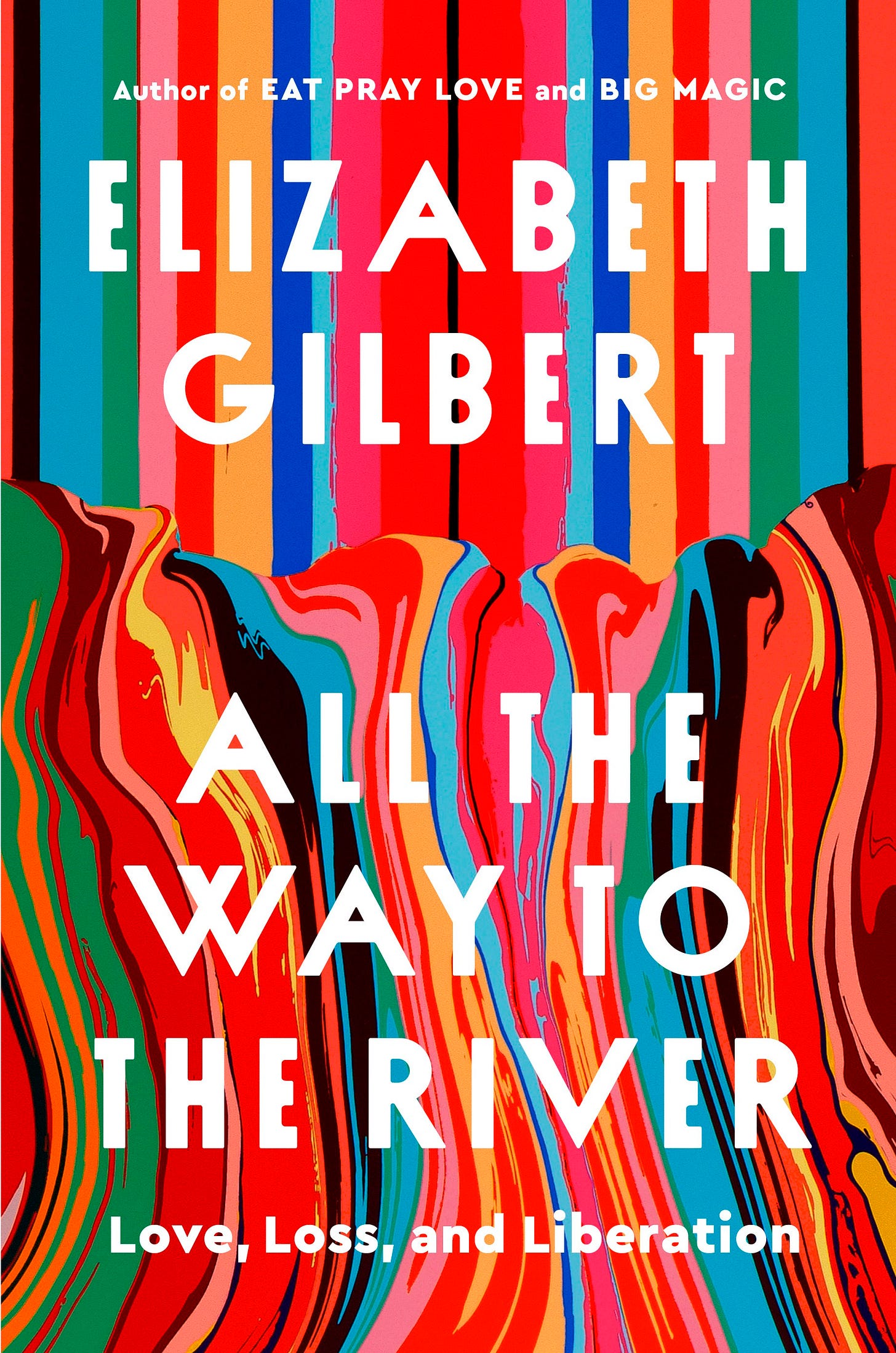
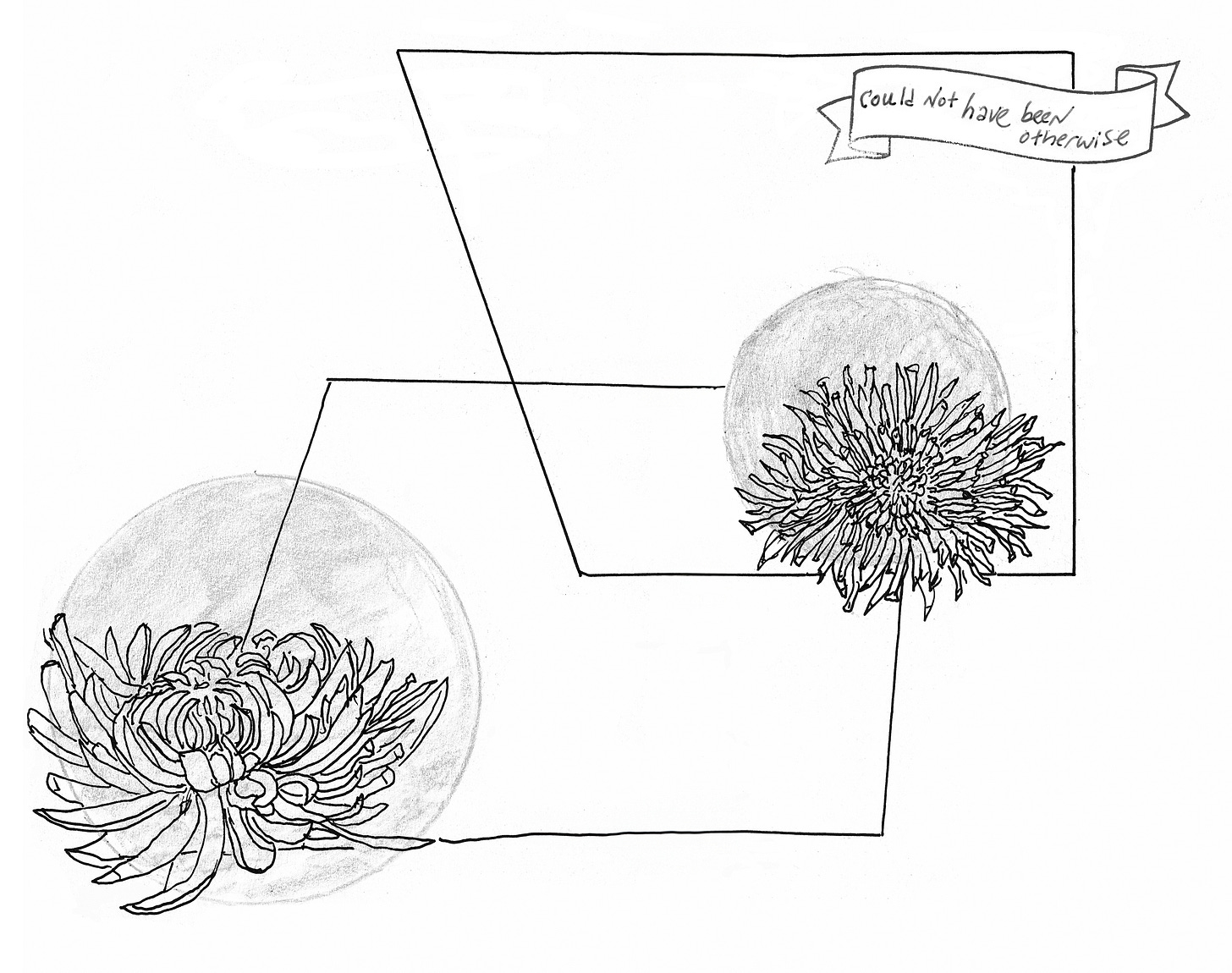
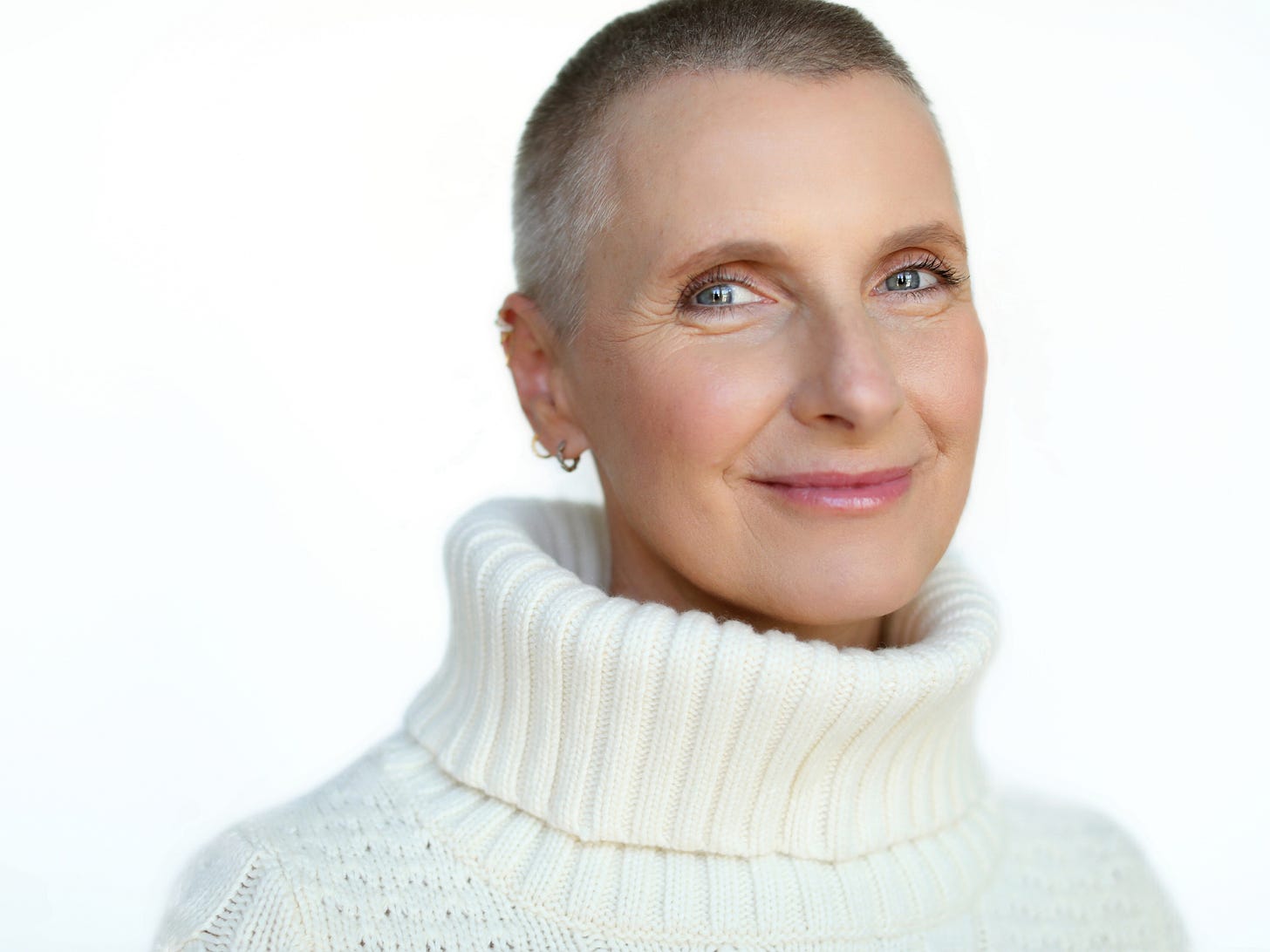
I read the book and have learned its content over decades in a 12 step program to recover from codependence, but hearing Liz's experience in discovering the information re-enlivened it for me. That's how program works; sharing our experience, strength and hope helps ourselves and others.
I'm a big Liz Gilbert fan, and I've already read the book. I'm having a really hard time, however, wrapping my head around thinking of (at least some) kinds of abuse as a gift. Esp. after listening to some of the survivors of Jefferey Epstein's horrific abuse recently. I don't think many abuse survivors would say this is what they needed to evolve.